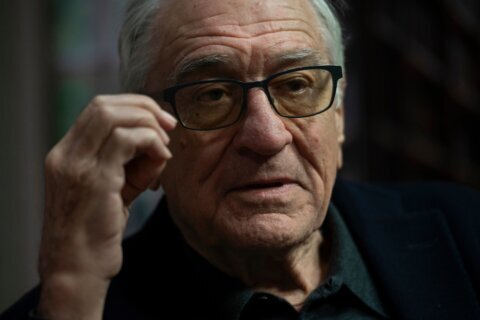Legendary playwright Edward Albee called it “the greatest American play ever written.”
Thornton Wilder’s “Our Town” comes to Shakespeare Theatre now through June 11.
“If I got a play put on my desk that did all these things now by a current playwright, I’d think it was crazy like, ‘What on earth is this play?'” Director Alan Paul told WTOP. “He broke all of these kind of amazing rules, so it’s an incredible piece of total theater. … The fact that they go into a version of death, then he takes you back to Earth, like who writes this?”
Set at the dawn of the 20th century, the Pulitzer Prize-winning play follows everyday lives of citizens in the fictional American small town of Grover’s Corners from 1901 to 1913.
“The original play is about two families, the Webb family and the Gibbs family,” Paul said. “The Webbs have a daughter named Emily, who falls in love with the Gibbs’ son, George, so it’s about them meeting, falling in love and what happens to them after, but it’s also about life and death, what it means to be in a small town in America, and the universe.”
Throughout the play, Wilder finds the profound nature of everyday moments.
“It’s macro and micro,” Paul said. “The play examines small, inconsequential moments of life, but by examining them, he’s trying to show us what is extraordinary about them. … There’s a famous line at the end that Emily asks, ‘Does anyone really realize life as they live it?’ The answer is no, but the play is an attempt to take stock of the moment.”
While it’s set at the turn of the century, don’t expect any period wardrobe.
“The way the characters behave has to do with that time … but the actors are going to be wearing modern clothes,” Paul said. “[Wilder] decided there should be no props. … He wanted the audience to fill in the blanks. … In the opening scene, two mothers are cooking breakfast, but there’s no breakfast, no stove, no pan, no plates. You see it all mimed.”
The three-act play is highly aware of itself with meta-theatrical devices.
“The amazing thing about the stage manager is they talk directly to the audience for almost all of the show,” Paul said. “I think it’s the first time ever we’ve turned the Harman Center into the round, so there will be audience on all four sides and the stage manager will be able to talk to literally everyone. … It’s going to be quite an interesting event.”
As you exit the theater, you might even contemplate your very existence.
“It talks about what is eternal, what is going to live on beyond our physical bodies when they die, what is love?” Paul said. “That’s why for almost 100 years we’ve come back.”
Listen to our full conversation here.







